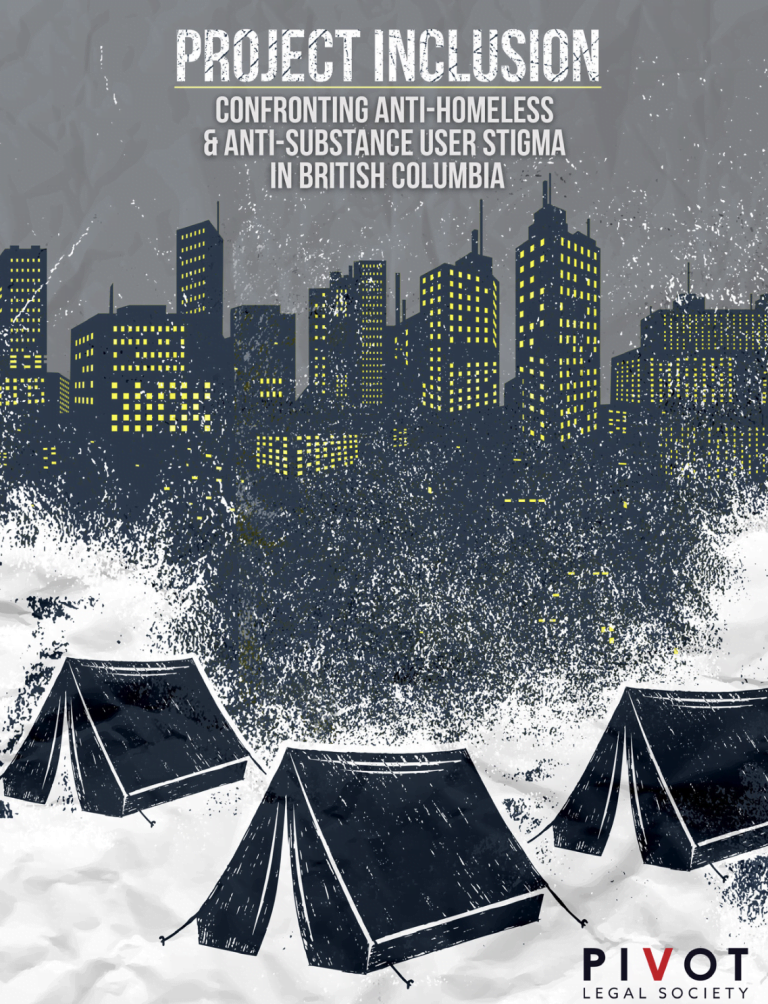16 search results
for
In poverty
Service gaps and barriers
The Ministry of Social Development and Poverty Reduction must make immediate changes to BC’s Income Assistance and Disability Assistance programs including:
Recommendation 28: Ensuring that people living with disabilities can access disability support by:- simplifying the application process to reduce wait times and lessen reliance on advocates;
- providing provincial guidelines for doctors/service providers on how and when to fill out disability forms; and
- ensuring that hospital social workers are resourced and directed to work with patients in need to apply for disability benefits.
-
Category and theme:
Audience:
Groups affected:
Location of recommendation:
Service gaps and barriers
Recommendation 29: The Legal Services Society of BC must provide legal support for appeals where a person has been denied income assistance or disability assistance.-
Category and theme:
Audience:
Groups affected:
Location of recommendation:
Service gaps and barriers
Recommendation 31: All government actors and health care providers must recognize the specific and indispensable expertise of people with lived experience. Increase peer-run and peer-delivered services and peer-support positions within government services by:- developing a provincial advisory board of people with lived experience of homelessness for BC Housing;
- establishing provincial best practices for engaging people with lived experience of poverty, homelessness, and substance use in service delivery modelled on GIPA (Greater Involvement of People living with HIV/AIDS), MIPA (Meaningful Involvement of People Living with HIV), and NAUWU (Nothing About Us Without Us) principles;
- collaborating with peer-led organizations to audit all provincial services (hospital, health, income assistance, shelter, housing) to identify and fund opportunities for peer engagement in service provision and planning; and
- developing a model for peer-involvement in the design and execution of homeless counts.
-
Category and theme:
Audience:
Groups affected:
Location of recommendation:
Operationalizing stigma-auditing
Recommendation 32: In consultation with experts, including human rights law organizations, trauma specialists, and people with lived experience, the Province of British Columbia should adopt a standardized tool and training protocol for conducting “stigma audits” of current laws, policies, and regulations in BC, and to inform the development of new laws, policies, and regulations.-
Category and theme:
Audience:
Groups affected:
Location of recommendation:
Operationalizing stigma-auditing
Recommendation 33: The relevant provincial ministries should engage in extensive education and outreach to legislators and staff across the provincial government, and local governments to introduce the stigma-auditing tool to law and policymakers, and to train stigma auditors.-
Category and theme:
Groups affected:
Location of recommendation:
Operationalizing stigma-auditing
Recommendation 34: In its first year in operation, the BC Human Rights Commission should prioritize stigma-auditing areas of law and policy that most directly impact highly stigmatized populations, including, but not limited to:- public space governance; income assistance and disability policy;
- housing policy and residential tenancy law;
- child welfare law and policy;
- policing law and policy;
- health policy related to mental health and substance use; and
- privacy law as it relates to people who live in public space and people who are criminalized as a result of substance use.
-
Category and theme:
- Ableism ,
- Accessibility ,
- Accessible services and technology ,
- Ageism ,
- Classism ,
- Discrimination and hate ,
- Economic inequality ,
- Health ,
- Housing and homelessness ,
- Income insecurity and benefits ,
- Other ,
- Policing ,
- Policing and the criminal justice system ,
- Poverty ,
- Poverty and economic inequality ,
- Privacy ,
- Substance use ,
- Tenancy rights
Groups affected:
Location of recommendation:
